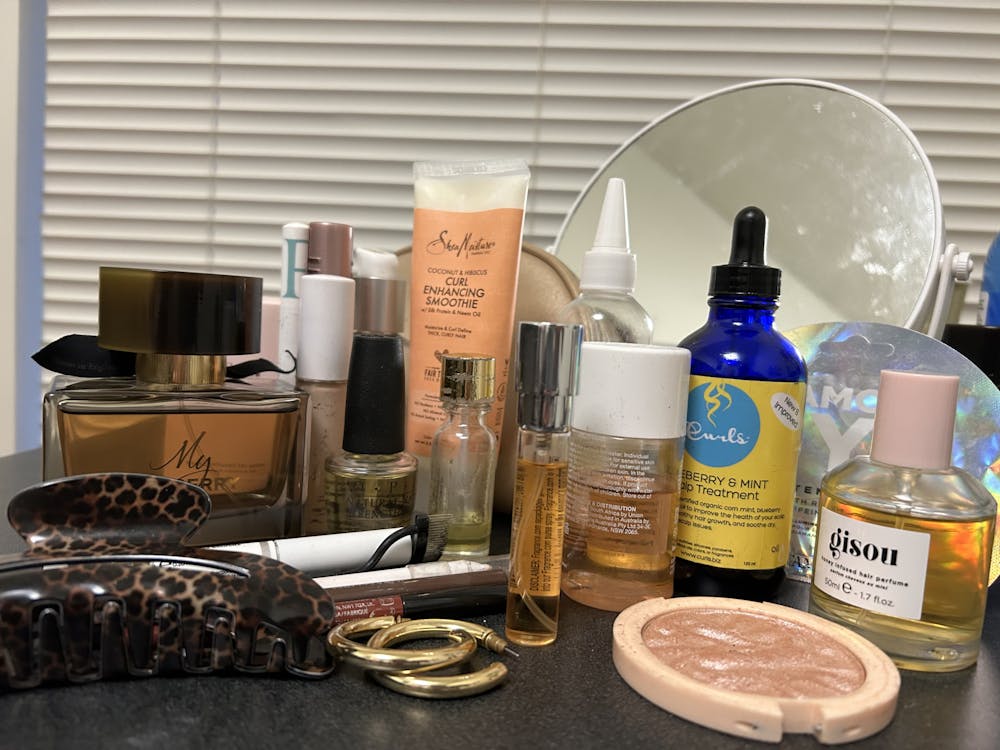
Scrolling mindlessly on Tiktok last week, I saw a video of an elderly woman, captioned: “I asked my nonna what her greatest insecurity was when she was little. She said she didn’t have time for that because of Mussolini.”
I was immediately pulled out of my trance of scrolling. After an initial wave of shock, the next emotion to wash over me was shame. Just a few hours before, I had purchased new mascara; and just before that, a new necklace. The week before, I also bought new jeans and face cream. In fact, for all of last month, not a single week went by where I didn’t make a purchase that was, in some way or another, related to my appearance.
I know I am not the only girl like this. It is a habit for my friends and I to look at clothes together, to go shopping, to share makeup. Without a second thought, we send each other links to freshly released products or videos with self-improvement tips. “Use lash serums, but only those without prostaglandins so you don’t have orbital fat loss.” “Apply rosemary and almond oil to make your hair grow faster, but not coconut oil because it clogs pores.” “Make sure you don’t have blush blindness.”
This borderline obsession is not necessarily completely our fault: for many women, their social media is constantly bombarded with videos like these, and there is an incredibly strong — and eventually, inescapable — emphasis on appearance and presentation.
With videos like these, the beauty industry implants insecurities in women and then jumps in as their knight in shining armor, gracing them with solutions. And yet, as horrible as it sounds, we are lucky to be experiencing this; we are lucky to have insecurities and try to work on them. The grandma in the video missed out on a whole part of girlhood, of the bittersweet art of bonding over superficial worries. My own grandma, in fact, did not experience the privilege of frivolity and superficiality either: growing up in the Soviet Union, she spent her youth worrying about where her next meal would come from when instead she could — and should — have been worrying about her hair and clothes as I do.
Superficiality is a privilege, and yet it is not a privilege that I am eagerly ready to accept. I realize that I am lucky enough to be graced with the opportunity to worry about my appearance rather than my safety, but it still isn’t enough. I like to believe that I am confident in myself, that I have overcome these insecurities, and am fully at peace with my existence. However, I know that’s not what I should really strive for; the true goal is not to care or think about confidence at all.
I have realized that the key to effectively rebelling against my habit of superficiality is to practice radical self-acceptance. I accept the things I worry about, I am grateful for them and I now let go of them.
I often try to imagine what my grandma’s teenage years were like. I myself will turn twenty soon, and in my final year of being a teenager, I have been given the grace to do what she never could when she was my age: worry about something as frivolous and fleeting as my appearance. But I’ve had my time now and bathed in superficiality enough: with her in mind, as I enter the new and exciting part of my life that is to be my twenties, I let go of those worries completely.
Anna Nikishina is a sophomore from Newcastle, Australia majoring in Applied Mathematics and Statistics.





